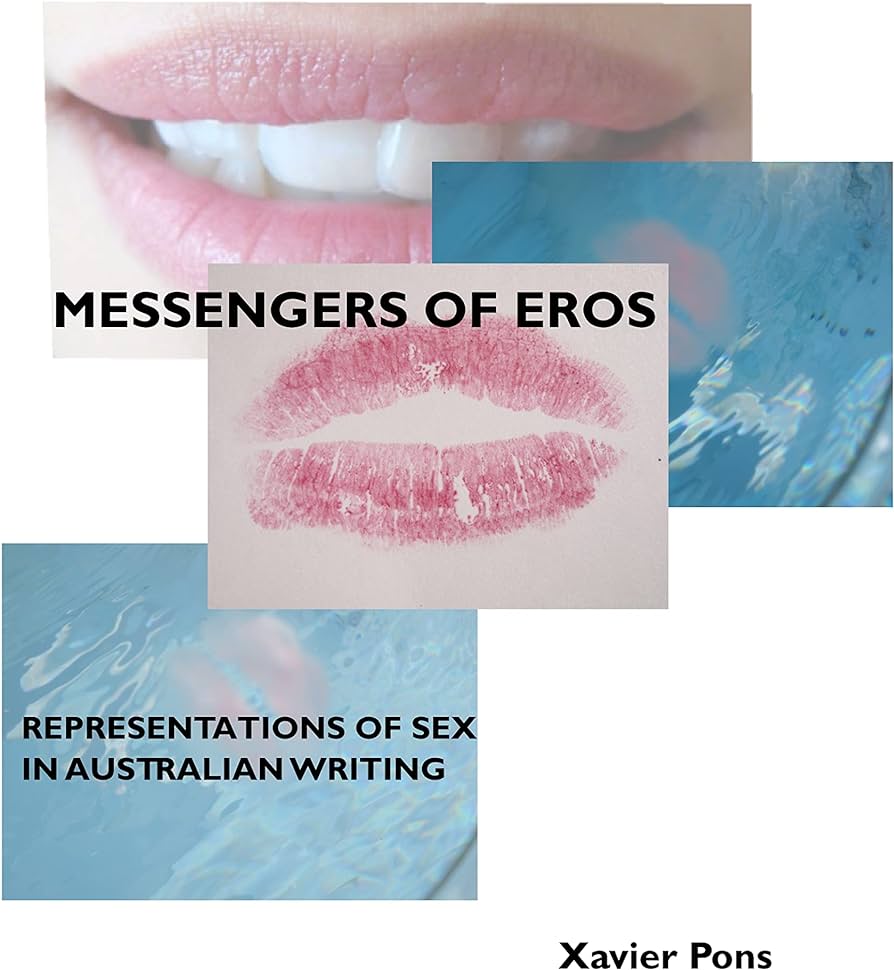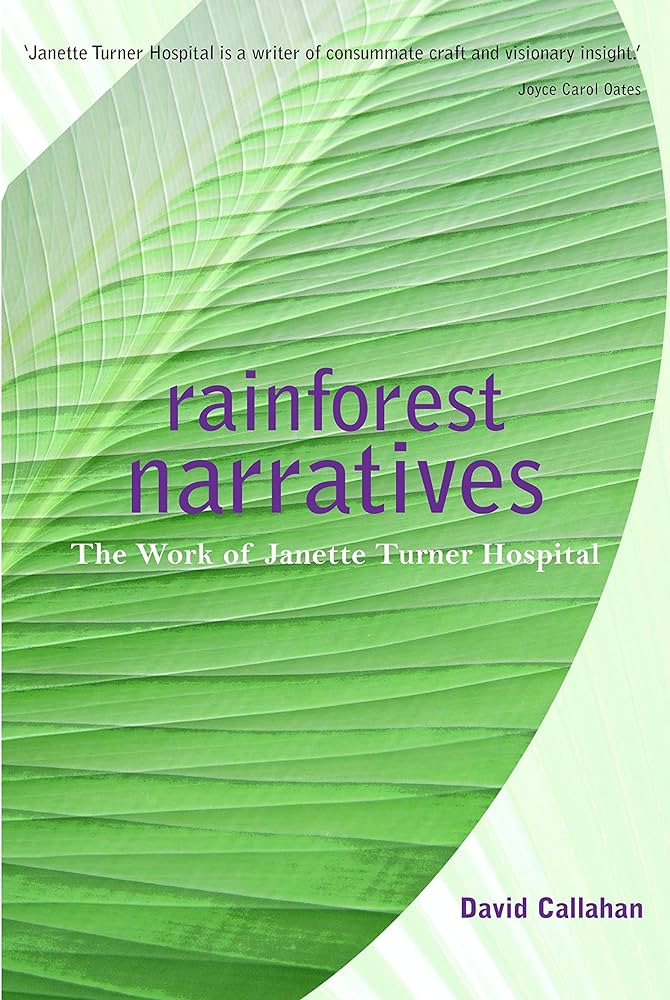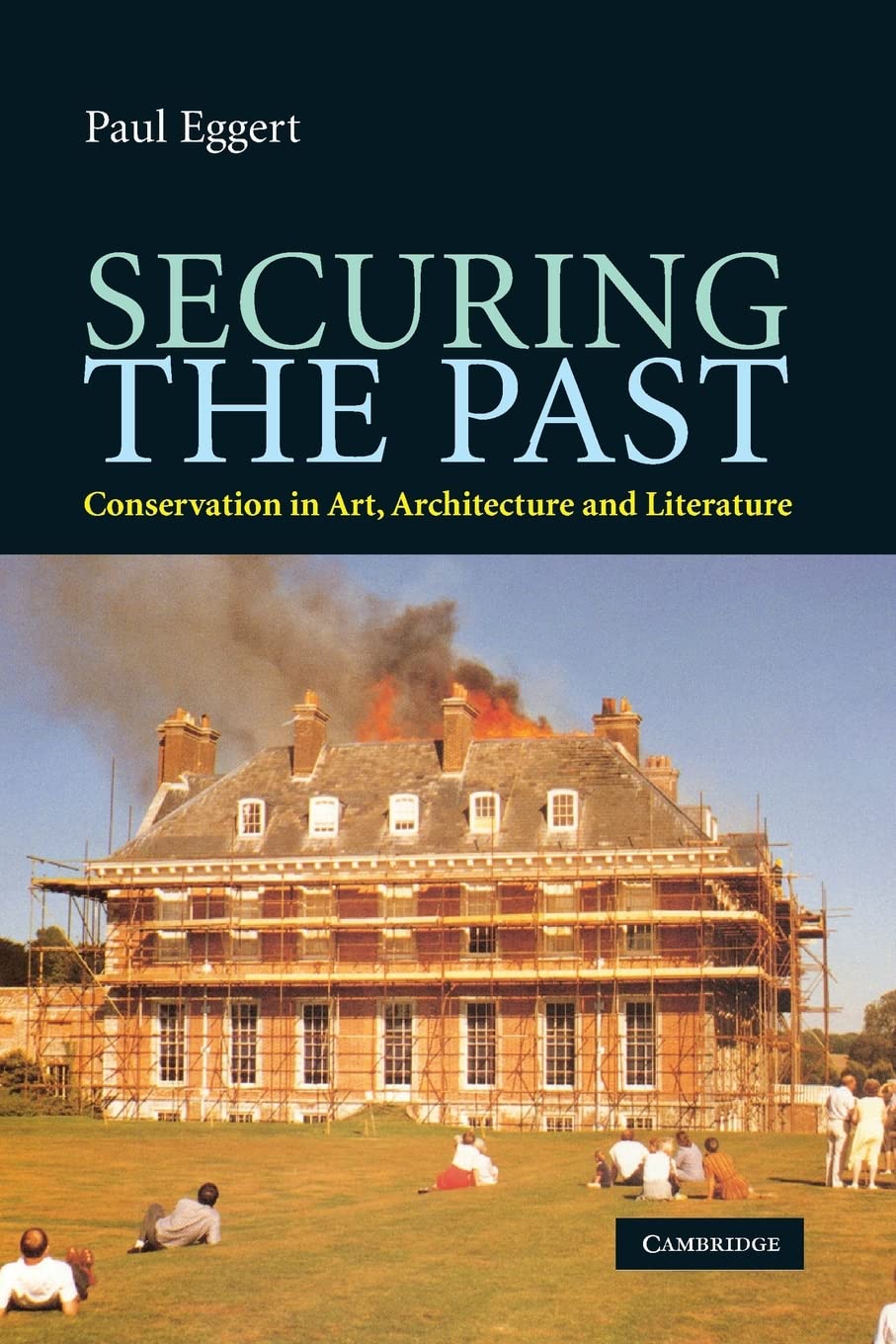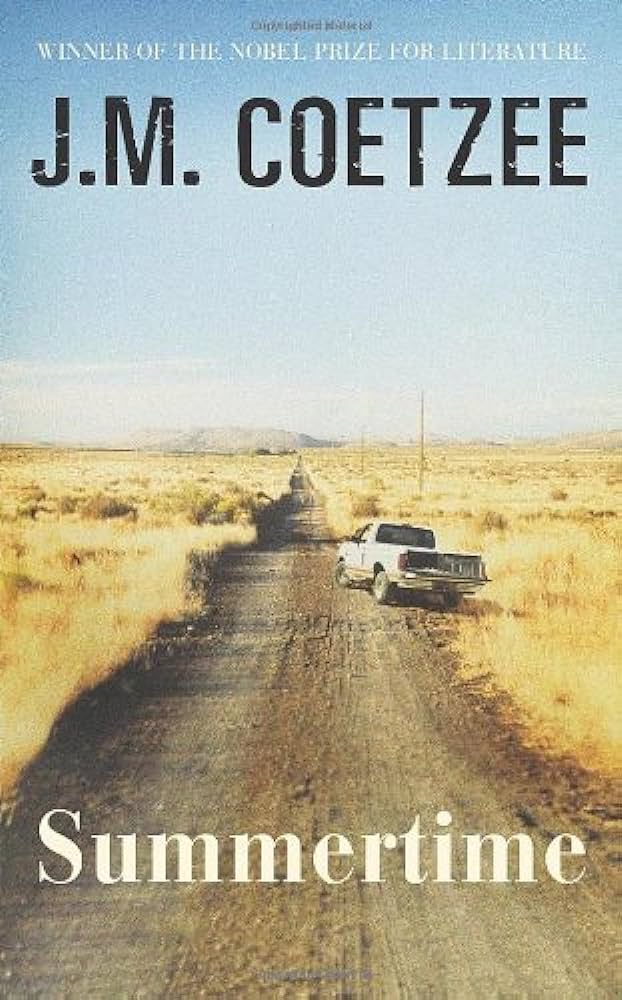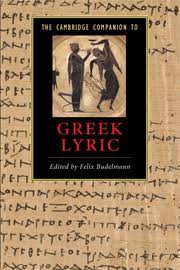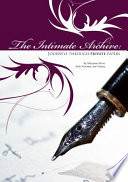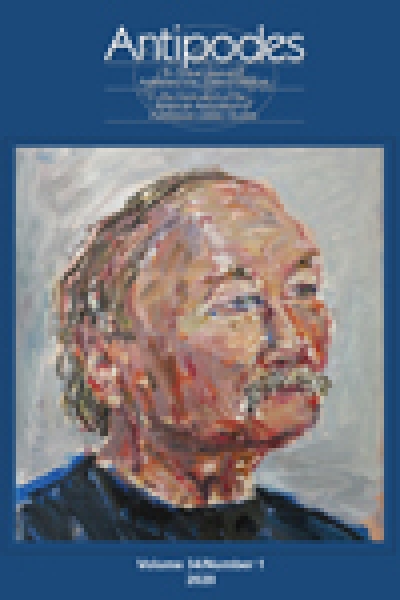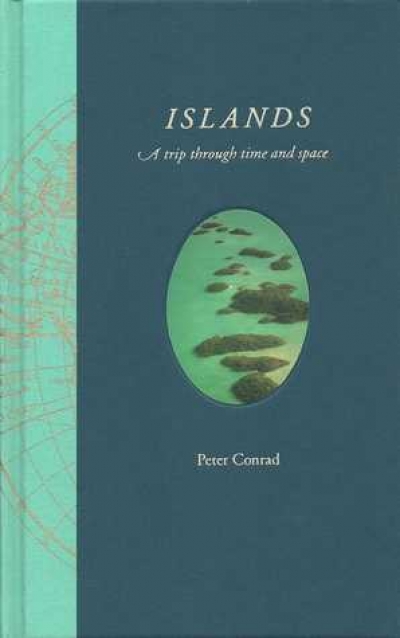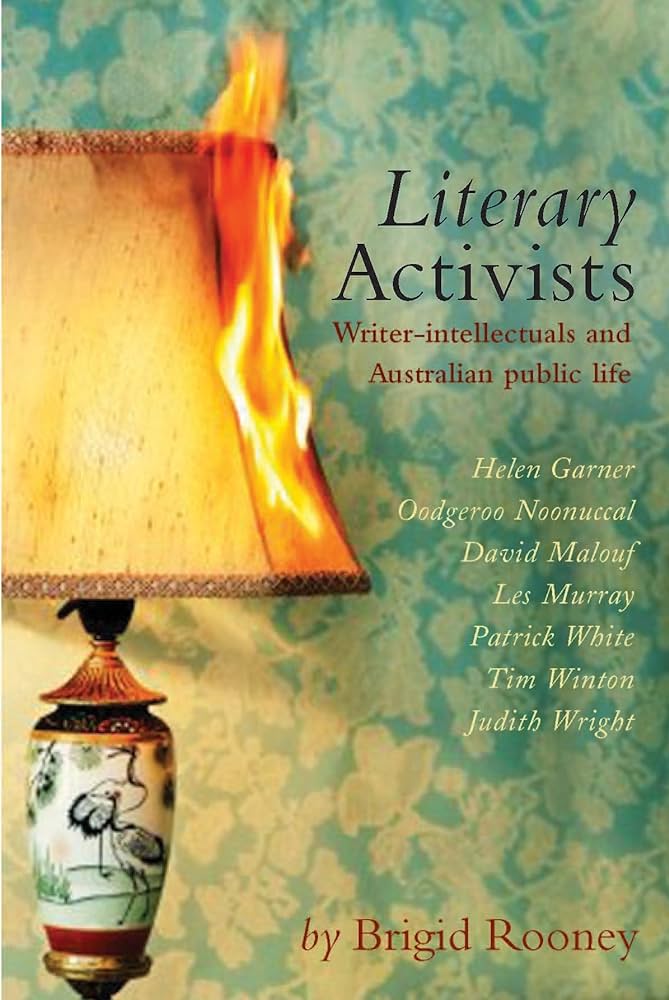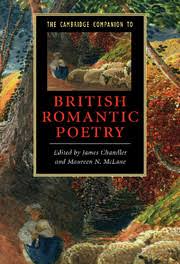Literary Studies
Messengers of Eros: Representations of sex in Australian writing by Xavier Pons
Like the man with a hammer to whom everything looks like a nail, Xavier Pons knows what he is looking for in his monograph on sex in Australian writing, and makes sure he finds it. Pons, a lecturer in Australian studies at the University of Toulouse, is clearly expert in his subject, and renders his explorations lucidly, at times with great insight, and intelligibly to non-specialist eyes.
... (read more)Rainforest Narratives: The Work of Janette Turner Hospital by David Callahan
Janette Turner Hospital is an Australian-born novelist with an international reputation, though Australian readers often have reservations about her work. She has written some brilliant short stories, but her novels can strain for effect, with insistent intellectual allusions and postmodern shifts of fictional status. Perhaps, though, this is a typical Australian response to an expatriate writer whose work is not immediately accessible. Australian critics have not been as willing to praise Hospital as some North American readers, including Joyce Carol Oates, who, on the cover of Rainforest Narratives, describes Hospital as ‘a writer of consummate craft and visionary insight’.
... (read more)Securing the Past:: Conservation in art, architecture and literature by Paul Eggert
Material culture is everywhere. We hoard it, we gift it, we visit it, we label it and we read it. There is little doubt that the production, preservation, use and re-use of material culture is a key means by which cultural identity is retained, protected and made available across generations. Understanding how a society inherits its cultural identity tells us a lot about that society and what it values. The danger is that this inheritance may be degraded and disenfranchised as time and fashion alter both the meaning, and materiality, of the object. If we are concerned about the stories that objects tell, we must also be concerned about possibilities for misunderstandings and mistranslations. Enter Paul Eggert and his new book, Securing the Past: Conservation in Art, Architecture and Literature.
... (read more)Summertime by J.M. Coetzee & The Cambridge Introduction to J.M. Coetzee by Dominic Head
Over the course of his long and distinguished career, J.M. Coetzee has written fiction in an array of modes and genres. His books include works of historical and epistolary fiction, realism, allegory and metafiction. He has written novels that have developed complex and evocative intertextual relationships with some of his most significant literary influences – Daniel Defoe, Fyodor Dostoevsky, Franz Kafka – and, in his recent writing, he has experimented with prose that is frankly discursive to the point of didacticism, using a fictional framework to problematise and interrogate statements that, given a different context, could be read as straightforward declarations of belief.
... (read more)The Cambridge Companion to Greek Lyric by Felix Budelmann
It is easy to be complacent about the Greeks. We know they invented democracy, philosophy, drama, the principle of free speech and other things that we value highly; but how often do we read the works of Homer and Hesiod, of Aeschylus, Sophocles and Euripides, of Herodotus and Thucydides, of Plato and Aristotle? How often do we reflect that the Greeks gave the West the very idea of literature? The heritage is so rich that there are whole periods and genres that many readers may never have encountered, except in the most tangential way.
... (read more)The Intimate Archive: Journeys through private papers by Maryanne Dever, Sally Newman and Ann Vickery
‘What is it that distinguishes “the experience of being in the archives” from other types of research?’ The introduction to The Intimate Archive indicates that this is a crucial question underpinning the book. Neither dry repositories of records nor merely the random detritus of lives, archives are understood as constructed artefacts, shaped by cultural and political practices as well as by chance. Their meaning also depends on the historical moment: what is overlooked by one generation of researchers may be important to another. What is regarded as evidence by a researcher trained in literature may be questioned by an historian. Particular interests, as well as factors like gender, may also influence the materials researchers select from papers and how they interpret them.
... (read more)The latest Antipodes opens with Katherine Bode’s provocative discussion of Roger McDonald’s The Ballad of Desmond Kale. Dissecting McDonald’s ‘fantasy of an all-white, all-male Australian society’, Bode’s essay also criticises Inga Clendinnen for exempting McDonald’s novel from her much-aired arguments against historical fiction. Bernadette Brennan draws on Maurice Blanchot to explore ‘the ungraspable experience of death’ evoked in works by Alex Miller and Noel Rowe, and Lyn McCredden has philosopher René Girard in mind when revisiting the familiar territory of the Lindy Chamberlain case and the ‘rituals of perpetual scapegoating’. Helen Gildfind ‘meets’ Janet Frame through Frame’s autobiographies, and reflects on the ‘reader’s power to decide the autobiographical status of a text’. The result is interestingly self-reflexive, but some readers might prefer more Frame and less Gildfind.
... (read more)‘There was a man who loved islands. He was born on one, but it didn’t suit him, as there were too many other people on it, besides himself.’ So begins D.H. Lawrence’s bleak little fable ‘The Man Who Loved Islands’. Lawrence’s islander wants control, sole possession, mastery of people and place. When his first island, fertile and beautiful, fails him because of the vast expense of making it perfect, he moves to a smaller one where, without love or desire, he drifts into marriage and fatherhood. Again he escapes. On the third and final island – a barren rock – his total isolation brings madness and death. The moral is clear. Lawrence thought of community as essential; without it we cannot be human.
... (read more)Literary Activists: Writer-Intellectuals and Australian Public Life by Brigid Rooney
While rehearsing in Martin Place for the recent Sydney Festival, my daughter found herself dancing on a plinth while a heckler below chanted ‘Wanker!’ throughout. On another platform, her fellow artists, all of them performing their intricately choreographed work, endured the calls of another passer-by, ‘You’re so predictable!’ In Australia, everybody’s a critic.
... (read more)The Cambridge Companion to British Romantic Poetry by James Chandler and Maureen N. McLane
The Cambridge Companion series has been a very successful venture, presenting readers with handy, up-to-date collections of specially commissioned essays by leading scholars on a wide range of authors and topics. This co-edited volume on British Romantic poetry encompasses many of the key topics in Romantic literary studies of the last two decades: historicism, canonisation, antiquarianism, Gothicism, the lyric, the rise of standardised English, women’s writing, colonialism, poetry’s relationship with the novel and with philosophy, and the legacy of Romanticism in contemporary poetry. There are also several essays which, in their originality and complex argumentation, cannot be so easily summed up and labelled: a brilliant reading by James Chandler of Wordsworth’s ‘Intimations of Immortality’ Ode as an important continuation of the eighteenth century’s ‘progress of poetry’ theme; an analysis of Romantic-era poetry which argues that the study of Romantic poetry belongs as much to media history as to literary scholarship; and an essay by Kevis Goodman which, by tracking the discursive migration of nostalgia from medical discourse into the heart of Romantic aesthetics, challenges the usual clichés of this period’s poetry as a de-historicising ‘exile from the present’, a poetry of return and retreat.
... (read more)

